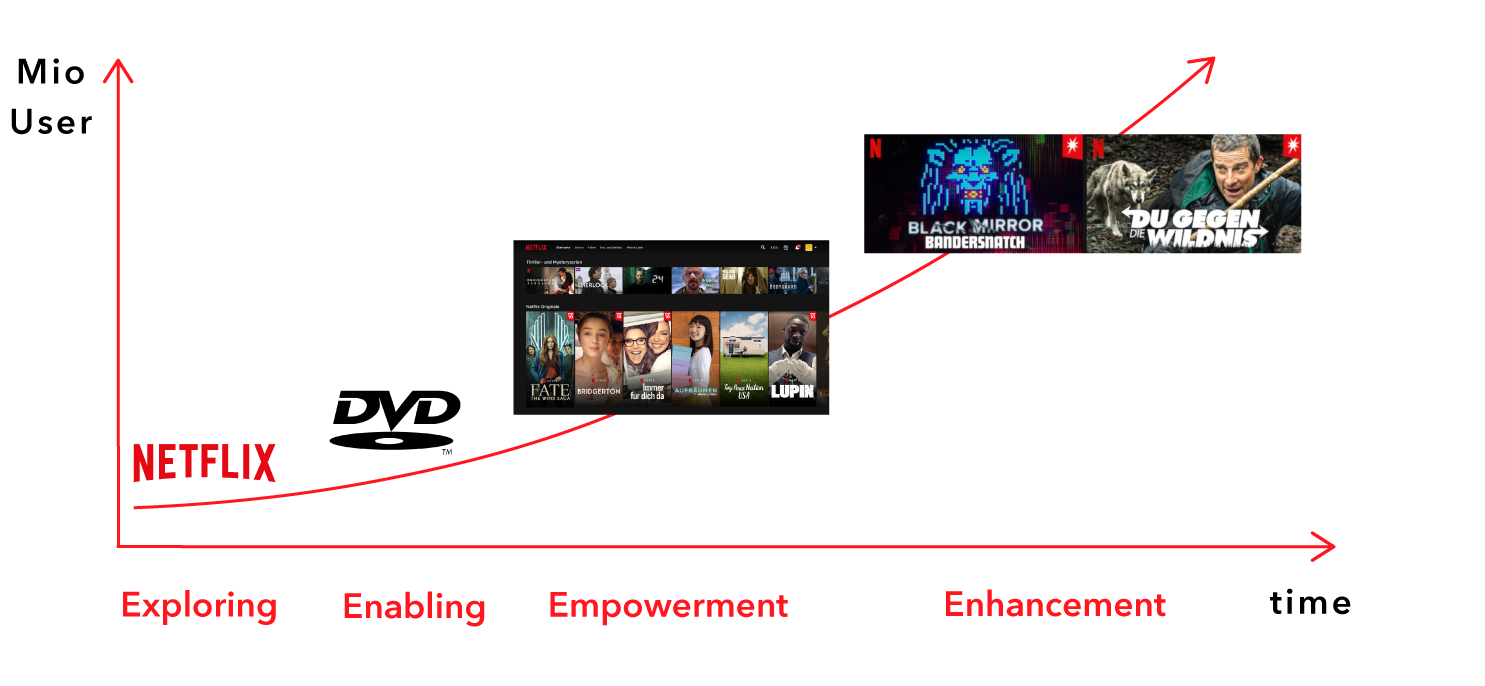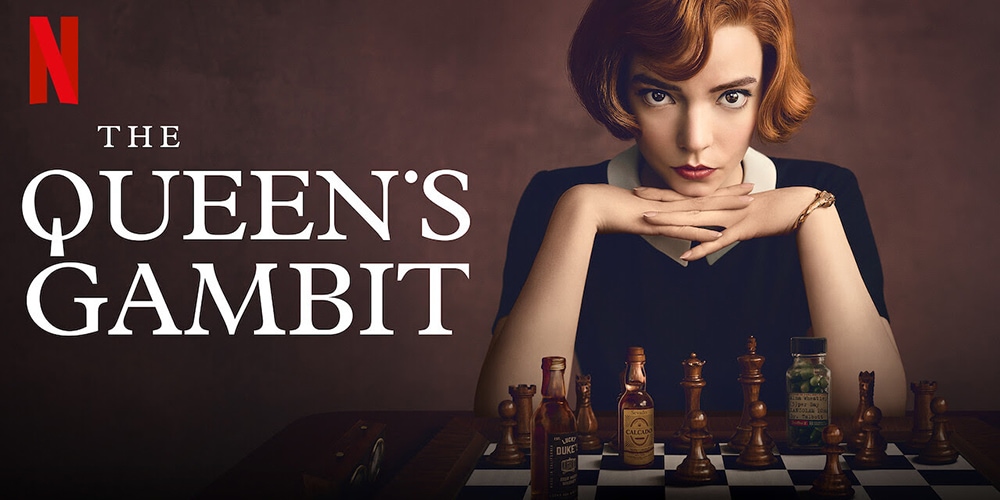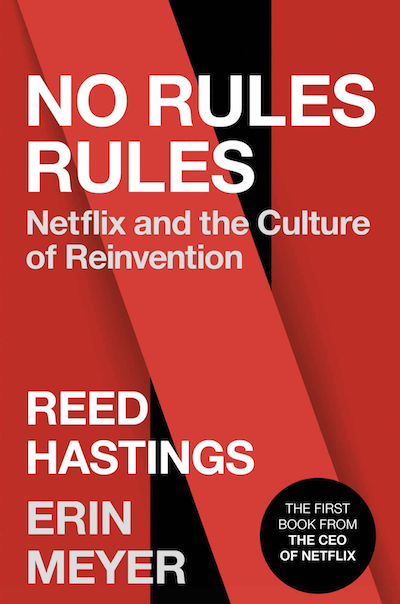SURVIVAL OF THE e-FITTEST.
The rise of e-commerce has been the fall of bricks-and-mortar businesses and traditional mail-order retail. Blockbuster, Quelle, RadioShack and many more have disappeared – unnecessarily so, as the success of one of their peers shows: a former mail-order retailer of DVDs, called Netflix. This is a company that has permanently reinvented itself, and focused more on customer needs than on business models.

When Netflix started in 1997, using the EDM model we call this the Exploring phase, they distributed DVDs by mail order and soon, supported by the Internet, upgraded their offering to a subscription model. In this case, the business model perfectly matched the expectations and the level of knowledge of the users. Their traditional mail-order experience was transferred to a new product offering, cross-vertical knowledge transfer. In this way the limited experience of users with the new technology, the internet, could be propped up by the abundant experience gained in older technologies.

By using engines or platforms, such as Google or eBay, consumers learned how to handle the internet and started to use it as a DVD delivery option (Enabling Phase). The next cross-sectoral learning was just around the corner: experience from the audio sector (naughty Napster) had already attracted attention and interest. Now users also learned how to stream content via YouTube. From a technical viewpoint, the internet became usable for content-rich offers thanks to its bandwidth expansion. Netflix reacted by offering streaming content. Whether this was a stroke of genius or more driven by the users’ demands may be left unanswered here.
FROM CUSTOMER EMPOWERMENT TO ENHANCEMENT

Image by Netflix
People were ready for this new product experience due to their higher level of knowledge and experience (Empowerment Phase). Mobile use arising through the iPhone/Android effect supported the development, helping Netflix to build reach and expand mobile usage. In addition, Netflix started to produce its own content to satisfy growing consumer demands. In doing so, they pioneered the trend to content-creation – with true gems like the 2020 mini-series, Queen’s Gambit, or their first interactive movie, Black Mirror: Bandersnatch, which gave viewers the opportunity to actively determine the course of the story themselves.
In the current Enhancement Phase, with AI as an innovation driver, personalised offerings enjoy greater traction. The Netflix recommendations are sometimes a better fit for the EDM than, say, product recommendations from Amazon or the inspiration tips given by Tripadvisor, simply because, on Netflix, the EDM can clearly see whether those recommendations offer them added value. Netflix is also working on a more scalable content-creation approach, enabled by the latest technologies. There is definitely more to come.
OUR MUST READ TIP FOR YOU

Image by Amazon
No Rules Rules: Netflix and the Culture of Reinvention
It’s time to do things differently. Trust your team. Be radically honest. And never, ever try to please your boss. These are some of the ground rules if you work at Netflix. They are part of a unique cultural experiment that explains how the company has transformed itself at lightning speed from a DVD mail order service into a streaming superpower – with 190 million, and still growing, fervent subscribers and a market capitalisation that rivals the likes of Disney.
Related:
The genesis of the Educated Decision-Maker
Understanding what’s coming – 5 inspirations for you!
